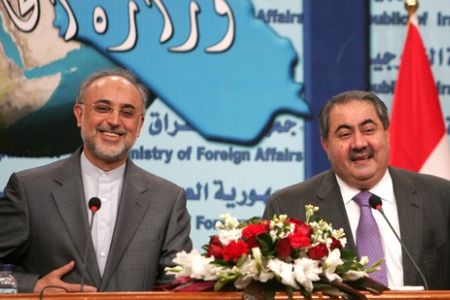| The Baathist elements and the MKO's suppression of the Iraqi Kurds in the north during the misanthropic Operation Anfal in 1988 and fierce massacre of Iraqis in the south in Intifadah Shabaniyah in 1991 negatively influenced the public opinion in Iraq. |

Though, the Saddam regime's oppressive [1980-88] Imposed War against the Islamic Republic left long-term adverse effects on the two countries' cultural and historical relations, the two sides tried to redefine the ties based on new developments inside Iraq following the fall of the Iraqi dictatorship.
The existence of Shiite holy sites within Iraq and religious sources of emulation in the holy city of Najaf played an effective role in the swift development of the bilateral relations in the aftermath of the regime change.
Hence, the Iranians' view of the Iraqi populace has always been an emotional and trans-governmental one, influenced by their religious commonalities.
The ties have been subjected to many upheavals over the past three decades. Domestic and foreign elements have, however, intensely affected the neighboring countries' relations beyond doubt.
The elements, which have been trying to prevent the two Muslim nations' gravitation towards one another, can be subjected to analysis from domestic, regional and foreign vantage points.
From the domestic viewpoint, the unjustifiable presence of the anti-Iran terrorist group Mujahedin Khalq Organization (MKO) in Iraq, which has invariably caused disappointment among the nation, has developed into a moot point between the two countries.
The group, which has played an active role in suppressing the Shiite and Kurdish population in cooperation with elements belonging to Saddam's dissolved Baath Party over the past 30 years, are intensely loathed by the Iranian and Iraqi people.
The Baathist elements and the MKO's suppression of the Iraqi Kurds in the north during the misanthropic Operation Anfal* in 1988 and fierce massacre of Iraqis in the south in Intifadah Shabaniyah ** in 1991 negatively influenced the public opinion in Iraq.
More than 400,000 Kurds and south-based Shias were either killed or injured in the two operations in which the MKO enjoyed a direct role alongside Saddam's security forces.
So the majority of the Iraqi public seeks apprehension and punishment of the MKO and wants the elements' ejection from the country. And any ambivalence on the part of [Prime Minister] Nouri al-Maliki's government about the expulsion would prompt the people to attempt a popular uprising to execute a vigilante-style punishment of the group.
It is then expected from Maliki's government to swiftly push the terrorist group out of Iraq to invite the contentment of the Iranian and Iraqi people.
Another domestic aspect, which overshadows the developing bilateral relations, is the presence of Baathist elements in the structure of the new Iraqi government, because the United States and some Arab regimes, which surround Iraq, prevented their complete obliteration from the body of the new leadership.
The mercenary elements try to prevent the convergence of the Iranian and Iraqi governments and pave the ground for the return of Iraq to the situation before the [fall of Baath] of March 2003.
It is, therefore, the Iraqi nation's rightful demand to want the elements out of the ruling structure and Maliki's government should not be influenced by foreign pressure on the matter.
Also resisting development in the Iran-Iraq ties is the dictator Arab regimes, which surround Iraq, which continue to maintain an ethnic and tribal view of the country.
The countries do not want a democratic and parliamentary system in Iraq, as the existence of an Arab democracy in the region threatens the dictating Arab governments.
The countries, therefore, tried to generate insecurity in Iraq by opening their borders for Arab terrorists' invasion of the country following the fall of Baath in 2003.
The US military presence in Iraq has also directly affected the expanding relations and slowed down their development.
Washington pressures Baghdad to cut down its Iranian ties as it does not want Tehran to play an effective role in resolution of regional crises.
Despite these factors, the Iran-Iraq relations grow further by day and the Iranian and Iraqi authorities' visits of the countries' capitals serve as clear examples of the ties' strong structure.
The visits can lay good groundwork for the resolution of some problems between the countries and pave the way for the two peoples and states' further gravitation towards one another.
Salehi's trip, then, is construed as an example of an active diplomatic move by Iran aimed at solving the entirety of the problems between the two and providing the requirements for the countries' peaceful coexistence together.
Salehi's meeting Iraq's president, prime minister, foreign minister, speaker of parliament and sources of emulation in Najaf is indicative of Iran's advantaged position from both official and popular aspects in Iraq.
The position is resultant from Iran's cooperation with the new Iraqi government since Tehran has always tried to play a positive role in resolving Iraq's crises and has paid a heavy political price by so doing.
Naturally, withdrawal of the occupying US forces from Iraq in the current year and the transfer of the guardianship of the country's security to ethnic forces would lay the necessary groundwork for further cooperation between Tehran and Baghdad, which would surely be effective in provision of stability and security for Iraq.
